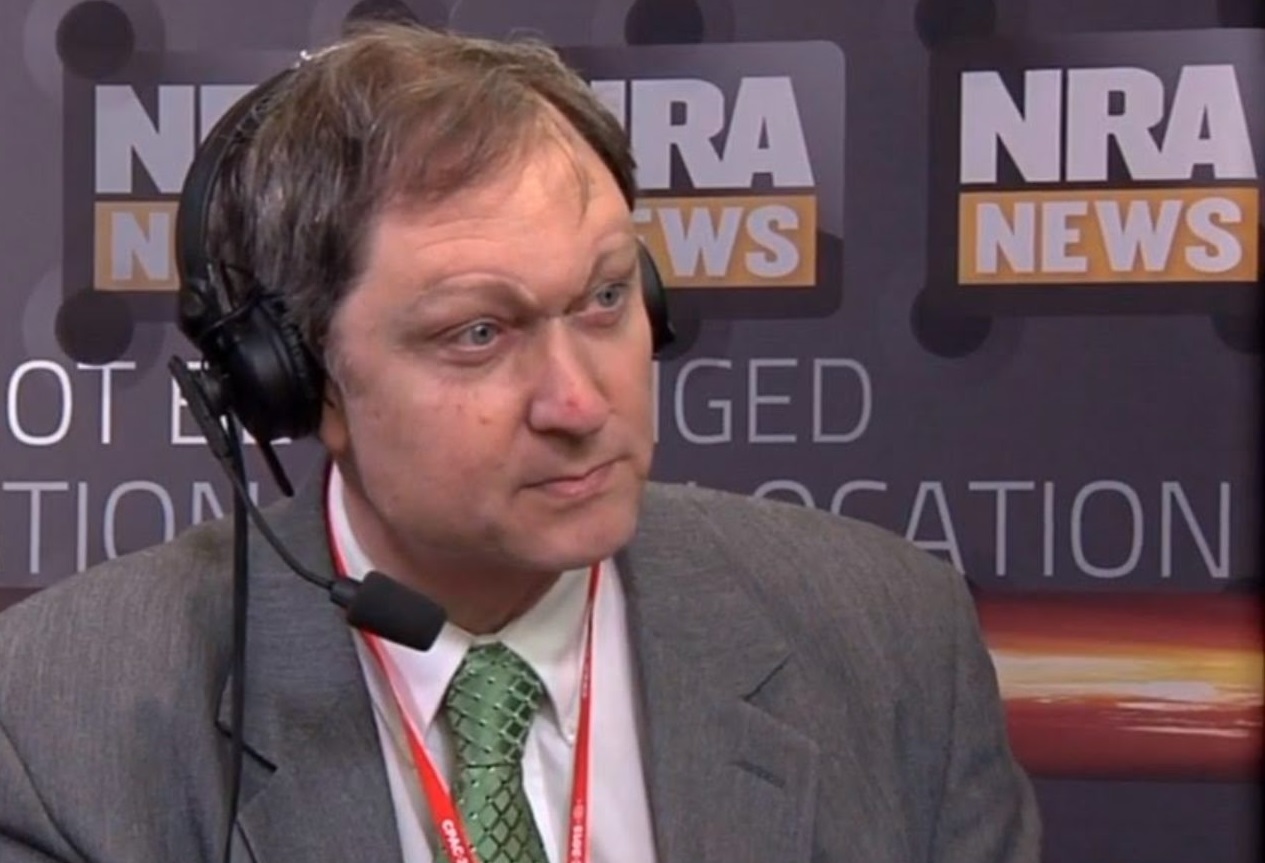John Lott Jr. is a central figure in the ongoing and often heated debate about gun control and crime statistics in the United States. As an economist and author, his work has significantly influenced discussions surrounding firearms policy, provoking strong reactions from both supporters and critics alike. His research primarily explores the connection between gun ownership and crime rates, with a central argument suggesting that increased gun ownership correlates with reduced crime rates. This article will examine Lott's background, his most notable contributions, and the controversies that have emerged as a result of his work.
Understanding Lott's role in shaping gun policy is essential, especially as debates about Second Amendment rights and public safety continue to dominate national conversations. His research has been referenced in numerous legal and political contexts, making his insights both timely and influential. However, his methodologies and conclusions have faced intense scrutiny, sparking ongoing discussions about the credibility of his findings and the broader implications for public policy.
This comprehensive article will delve into John Lott Jr.'s biography, his major works, the controversies surrounding his research, and his overall impact on gun policy. By the end of this article, readers will have a more nuanced understanding of Lott's contributions to the gun control debate and the complexities of his arguments.
Read also:Exploring Vegamovies A Comprehensive Guide To Its Features Risks And Alternatives
Table of Contents
- Biography of John Lott Jr.
- Education and Early Career
- Key Works and Contributions
- Controversies Surrounding Lott
- Impact on Gun Policy
- Understanding Lott’s Statistical Methods
- Supporters of Lott’s Work
- Conclusion
Biography of John Lott Jr.
| Name | John Lott Jr. |
|---|---|
| Date of Birth | December 15, 1958 |
| Occupation | Economist, Author |
| Notable Works | More Guns, Less Crime; The Bias Against Guns |
| Education | Ph.D. in Economics from UCLA |
John Lott Jr., born on December 15, 1958, is a renowned economist and author whose career has been marked by a deep engagement with the intersection of economics and public policy, particularly in the area of firearms. His academic journey began with obtaining a Ph.D. in Economics from the University of California, Los Angeles (UCLA), which provided him with the analytical foundation necessary to explore complex social issues. Lott's work has since become a focal point in the national discourse on gun control and crime statistics.
Education and Early Career
Lott's educational background is distinguished by a strong focus on economic theories and methodologies. After earning his Ph.D., he embarked on a career in academia, teaching at prestigious institutions such as Yale University and the Wharton School of the University of Pennsylvania. During this period, he began to investigate the economic dimensions of crime and gun control, laying the groundwork for his groundbreaking research. His early studies explored the intricate relationships between gun ownership, crime rates, and public safety, setting the stage for the controversial conclusions he would later present.
Equipped with a rigorous economic training, Lott developed a critical approach to analyzing data, which he applied to the study of crime and gun policy. However, his methods and findings have sparked intense debates about the reliability and validity of his research, further fueling the already contentious discussions surrounding gun control in the United States.
Key Works and Contributions
Among Lott's most influential works is the book "More Guns, Less Crime," first published in 1998. In this seminal text, Lott argues that states with more permissive gun laws tend to experience lower crime rates. He posits that the presence of armed citizens serves as a deterrent to violent crime, a claim that has ignited significant debate within academic and policy circles. This work has been both praised and criticized for its bold assertions and innovative approach to analyzing crime statistics.
Beyond "More Guns, Less Crime," Lott has authored several other books that contribute to the discourse on gun rights and crime statistics, including:
- The Bias Against Guns (2003)
- Freedomnomics (2007)
- More Guns, Less Crime: Understanding Crime and Gun Control Laws (2010)
These publications have solidified Lott's position as a prominent figure in the gun control debate, often cited by policymakers and advocacy groups on both sides of the issue. His work continues to influence discussions about the relationship between firearms and public safety, making him a key voice in the ongoing conversation about gun policy in America.
Read also:Exploring Yuki Ishikawas Relationship Journey A Comprehensive Guide
Controversies Surrounding Lott
Despite his contributions to the field, John Lott's research has not been without controversy. Critics have raised numerous concerns about the methodologies and conclusions of his work, arguing that his findings may be overstated or misinterpreted. Some of the most significant controversies include:
- Data Selection: Critics claim that Lott selectively uses data to support his hypotheses while disregarding evidence that contradicts his claims. This selective presentation of information has led to questions about the robustness of his research.
- Peer Review: Several studies that challenge Lott's conclusions have undergone rigorous peer review, leading to skepticism about the validity of his claims. This has further fueled debates about the credibility of his research methods and findings.
- Public Statements: Lott has faced criticism for certain public statements that some have deemed misleading or inflammatory, further complicating the reception of his work in both academic and public spheres.
As a result of these controversies, Lott's work has become a focal point for discussions about the integrity of research in the field of gun policy, sparking ongoing debates about the role of evidence in shaping public policy.
Impact on Gun Policy
John Lott's influence on gun policy is both profound and far-reaching. His arguments about the relationship between gun ownership and crime rates have been referenced in various legislative discussions and have played a significant role in shaping the narrative around gun rights in the United States. For example, his research has been cited in court cases concerning the Second Amendment and the legality of concealed carry laws, highlighting its relevance in legal and political contexts.
Moreover, Lott's advocacy for gun rights has inspired a wide range of supporters, leading to increased public interest in the issue and influencing the positions of numerous lawmakers. His contributions have become essential reading for those involved in the gun policy debate, providing a foundation for discussions about the balance between individual rights and public safety.
Understanding Lott’s Statistical Methods
A critical component of Lott's work is his use of statistical methods to analyze crime data. He employs regression analysis to identify correlations between gun ownership rates and crime rates, offering empirical evidence to support his claims. However, this approach has drawn criticism, particularly regarding:
- Assumptions: Critics argue that Lott's models rely on assumptions that may not hold true in all contexts, potentially leading to flawed conclusions.
- Data Integrity: Questions have been raised about the accuracy of the data Lott uses, particularly in terms of state-by-state comparisons, which could affect the reliability of his findings.
- Counterarguments: Numerous studies have presented counterarguments to Lott's findings, suggesting that the relationship between gun ownership and crime is far more complex than he portrays.
Understanding Lott's statistical methods is essential for anyone seeking to critically engage with his work and the broader debates surrounding gun policy and crime statistics.
Supporters of Lott’s Work
Despite the controversies, John Lott has a dedicated base of supporters who believe in the value of his research and conclusions. These supporters argue that:
- Gun Ownership is a Constitutional Right: They emphasize the importance of protecting the Second Amendment rights of individuals.
- Lott's Findings Provide Empirical Evidence: They believe his research offers valuable insights that can inform public policy and enhance public safety.
- His Work Challenges Misconceptions: They assert that Lott's research helps to counteract the prevailing narrative that increased gun ownership leads to higher crime rates.
Supporters often reference Lott's research in discussions about gun legislation, highlighting its significance in shaping the ongoing debate about firearms policy in the United States.
Conclusion
In conclusion, John Lott Jr. has played a pivotal role in shaping the discourse around gun policy and crime statistics in the United States. His research has sparked both support and controversy, making him a polarizing yet influential figure in the field. Understanding his contributions, methodologies, and the debates surrounding his work is essential for anyone seeking to engage with the complexities of gun ownership and public safety.
We encourage readers to critically examine Lott's findings and participate in the broader discussion on gun control. Please feel free to share your thoughts in the comments section below, share this article with others, or explore more content on our site.
Thank you for reading, and we hope you will return for more insightful articles on pressing social issues.


